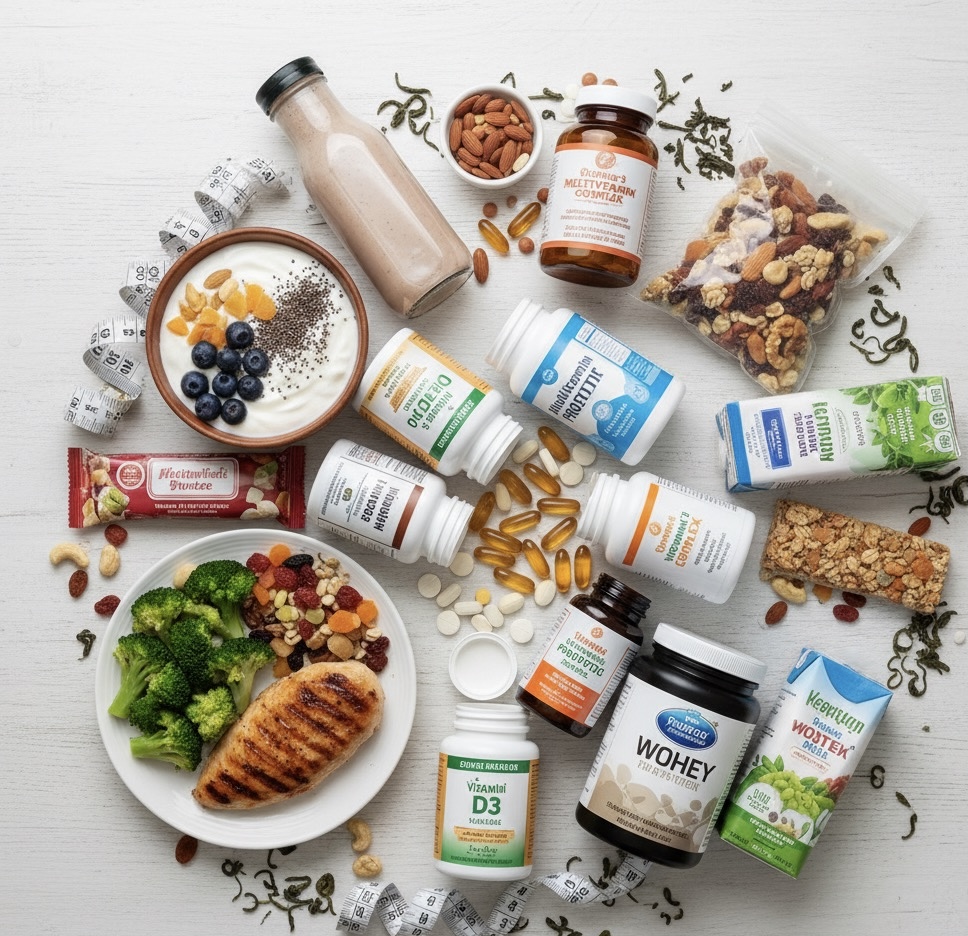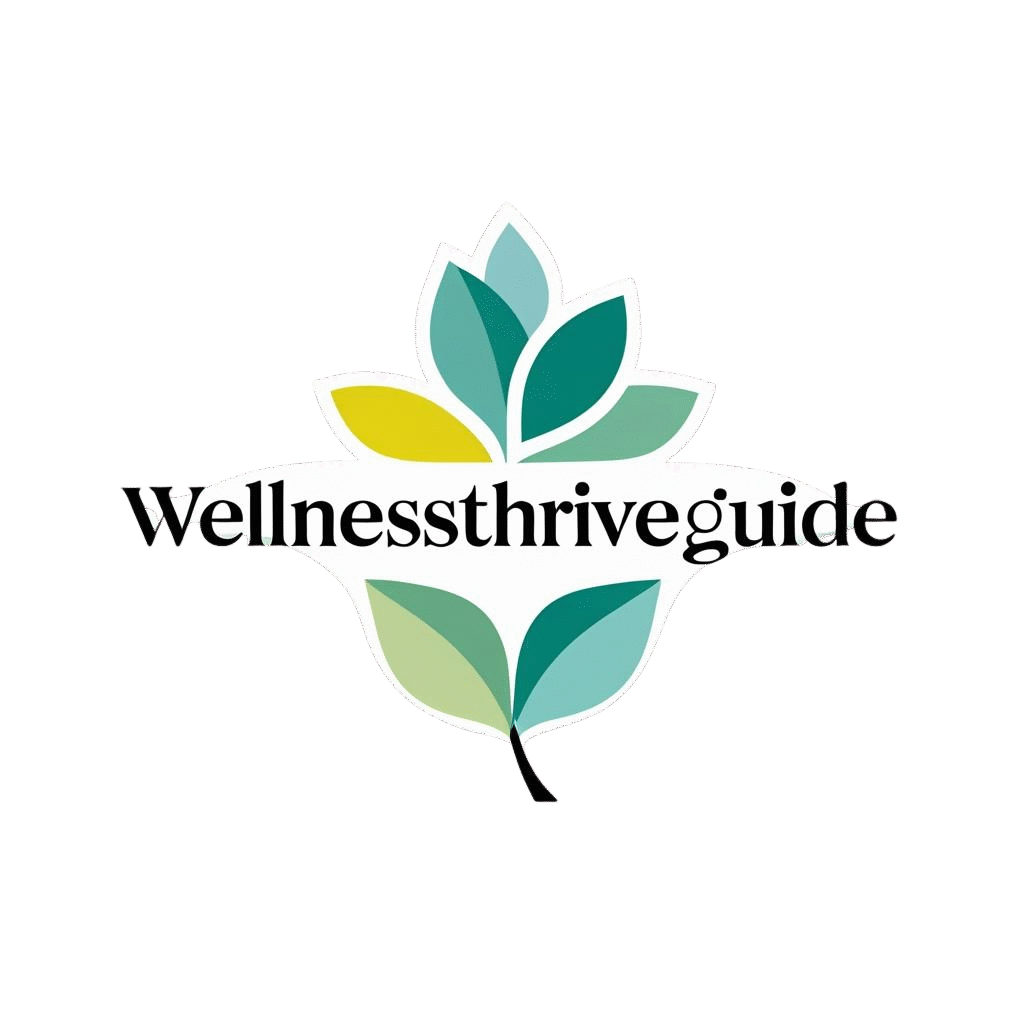
The Ultimate Guide to Vitamins and Supplements: Benefits, Sources, and Safe Use
Discover everything about vitamins and supplements and their benefits, natural food sources, and safe use for better energy, stronger immunity, and overall wellness. 
Introduction: Why Vitamins and Supplements Matter
In our busy lives, it can be tough to eat a perfectly balanced diet. Many people find it hard to avoid processed foods or make time for healthy meals. Over time, this can lead to feeling tired, having a weak immune system, and facing various health issues. Vitamins and supplements can help fill in these nutritional gaps by providing essential nutrients that we might not get enough of from our food.
However, it’s important to remember that vitamins and supplements aren’t miracle solutions. They work best when combined with healthy eating, regular exercise, and proper rest. To really understand how they can help your body, it’s crucial to know what they are, what they do, and how to use them safely.
What Are Vitamins and Supplements?
Vitamins: Essential Micronutrients for Life
Vitamins are organic compounds that our bodies need in small amounts to function properly, grow, and stay healthy. They play key roles in metabolism, immunity, and overall well-being. There are thirteen essential vitamins, which are grouped into two categories: fat-soluble (A, D, E, and K) and water-soluble (C and the B vitamins — B1, B2, B3, B5, B6, B7, B9, and B12).
– Fat-soluble vitamins can be stored in body fat and the liver, so we don’t need to consume them every day.
– Water-soluble vitamins, however, aren’t stored in large amounts and need to be replenished regularly through our diet or supplements.
Supplements: Concentrated Nutritional Support
Supplements are concentrated forms of nutrients or compounds that add to your diet. They include vitamins, minerals, amino acids, probiotics, and herbal extracts, and they come in various forms like tablets, capsules, powders, or liquids.
The main goal of supplements is to support health, not to replace meals. For example, a multivitamin can help cover small nutritional gaps, while omega-3 fatty acids, probiotics, or herbal blends can target specific health areas like heart health, digestion, or energy levels.
Benefits of Vitamins and Supplements
1. Strengthening Immunity
Vitamins and supplements are vital for maintaining a strong immune system. Vitamins C and D, along with minerals like zinc and selenium, help the body fight infections. Vitamin C protects cells and boosts white blood cell production, while Vitamin D helps regulate immune responses and zinc aids in healing.
2. Boosting Energy and Reducing Fatigue
The B-vitamin family — including B1, B2, B6, and B12 helps convert food into energy. Not getting enough of these vitamins can lead to weakness and poor concentration. A balanced B-complex supplement can support metabolism, especially for those under stress or on restrictive diets.
3. Promoting Healthy Skin, Hair, and Nails
Nutrients like biotin, Vitamin E, and collagen can enhance your appearance by improving skin texture, hair strength, and nail growth. Biotin strengthens hair, Vitamin E protects the skin from damage, and collagen supplements boost skin elasticity and hydration.
4. Supporting Bone and Joint Health
Strong bones and healthy joints rely on nutrients like calcium, Vitamin D, and magnesium. Calcium is essential for bone strength, Vitamin D helps absorb calcium, and magnesium supports bone structure. Omega-3 fatty acids from fish oil can also reduce joint stiffness and inflammation.
5. Enhancing Brain Function and Mental Clarity
Supplements such as omega-3 fatty acids, B vitamins, and antioxidants can improve brain performance. Omega-3s enhance memory and focus, while Vitamin B12 and folate are essential for healthy nerve cells and may help prevent cognitive decline.
6. Supporting Men’s and Women’s Health
Men and women have different nutritional needs. Women may benefit from iron, calcium, and folic acid for reproductive health, while men might need more zinc, magnesium, and selenium for hormone balance and muscle maintenance.
7. Managing Chronic Health Conditions
Some supplements can help manage long-term health issues when used alongside medical treatments. Omega-3 fatty acids can lower triglyceride levels, Coenzyme Q10 (CoQ10) aids energy production, and antioxidants help combat inflammation.
Natural Sources of Vitamins
While supplements can be helpful, getting nutrients from food is always best. Most essential vitamins can be found in a balanced diet.
– Vitamin A is found in colorful fruits and vegetables like carrots and leafy greens.
– B vitamins are abundant in whole grains, eggs, legumes, and dairy.
– Vitamin C is rich in citrus fruits, berries, and peppers.
– Vitamin D is produced when your skin is exposed to sunlight and is also found in fish and fortified foods.
– Vitamin E comes from nuts, seeds, and plant oils, while Vitamin K is found in green vegetables.
– Calcium is in dairy, tofu, and leafy greens; iron is in red meat and beans; and zinc is in seafood and seeds.
A nutrient-rich diet should always come first, with supplements serving as additional support when necessary.
How to Choose the Right Vitamins and Supplements
With so many options available, picking quality supplements can be tricky. Here are some practical steps to help you choose wisely:
1. Identify Your Nutritional Needs
Assess your diet and lifestyle. If you often skip meals or eat processed foods, a multivitamin might be beneficial. A healthcare professional can help identify specific deficiencies through blood tests.
2. Read Labels Carefully
Look for independent testing and certification marks like USP, NSF, or GMP, which confirm product quality. Avoid products with artificial colors or unverified health claims. Ensure the ingredients match your needs.
3. Match Supplements to Your Lifestyle
Different lifestyles require different nutrients. For example, athletes may need more protein and electrolytes, while older adults often need calcium and Vitamin D. Choose based on your personal habits for the best results.
4. Purchase from Reputable Brands
Buy supplements from trusted brands and retailers. Counterfeit or poorly made products can be harmful. Look for brands known for transparency and safety testing.
Are Supplements Safe?
When used correctly, supplements are generally safe. However, misuse can lead to toxicity or unwanted side effects. For instance, too much Vitamin A can harm the liver, and excessive iron can cause constipation.
The key is moderation and medical guidance. Always follow the manufacturer’s instructions or your healthcare provider’s advice. If you notice any unusual symptoms while taking a supplement, stop immediately and consult a professional.
Using Supplements as Part of a Healthy Lifestyle
Supplements should enhance, not replace, a healthy lifestyle. To maximize their benefits, combine supplementation with good daily habits:
– Eat a diverse diet rich in fruits, vegetables, whole grains, and lean proteins.
– Stay hydrated, as water helps nutrient absorption.
– Exercise regularly to boost metabolism and circulation.
– Prioritize rest and manage stress, as lack of sleep can deplete essential vitamins.
When supplements are used alongside good nutrition and lifestyle choices, they work more effectively.
Popular Types of Supplements Around the World
Globally, the supplement industry is growing as more people focus on health and preventive care. Common supplements include multivitamins for general wellness, Vitamin C for immunity, omega-3 fish oil for heart health, calcium with Vitamin D for bones, probiotics for digestion, and herbal extracts like turmeric and ginseng for inflammation and energy.
While these supplements are widely available, their effectiveness depends on quality and proper use. Always research products and consult a healthcare professional before starting a new supplement routine.
The Science Behind Supplementation
Scientific studies show that certain supplements can offer real benefits when used correctly. For example, Vitamin D can reduce the risk of bone fractures, and omega-3 fatty acids are linked to better heart health. Iron supplements can help with anemia, and probiotics can improve gut health.
However, not all supplements have strong evidence supporting their claims. Some may be overhyped. The safest approach is evidence-based supplementation guided by medical advice and sound nutrition
Frequently Asked Questions About Vitamins and Supplements
1. Should supplements be taken every day?
Only take them daily if needed. Follow your doctor’s advice or the manufacturer’s instructions.
2. Can I take multiple supplements together?
Yes, but make sure they don’t overlap in ingredients. Too much of the same nutrient can be harmful.
3. Are supplements better than food?
No. Food should always be your main source of nutrients. Supplements are meant to complement, not replace, real food.
4. Are herbal supplements safe?
Many are, but safety depends on product quality and correct dosage. Always check for purity and potential drug interactions.
5. Can supplements help with weight management?
They can support metabolism and energy, but true weight control relies on balanced eating and exercise.
Conclusion: Choose Health Wisely
Vitamins and supplements can be valuable tools for maintaining wellness and preventing deficiencies. They can strengthen immunity, boost energy, enhance beauty, and support overall health but they shouldn’t replace healthy habits.
The best approach is balanced: eat nutritious foods, stay active, get enough sleep, and use supplements to fill any small gaps in your diet. Always consult a healthcare provider before starting a new supplement, especially if you’re pregnant, breastfeeding, or managing a medical condition.
When used correctly, supplements can improve your health and empower you to take control of it, one informed choice at a time.



